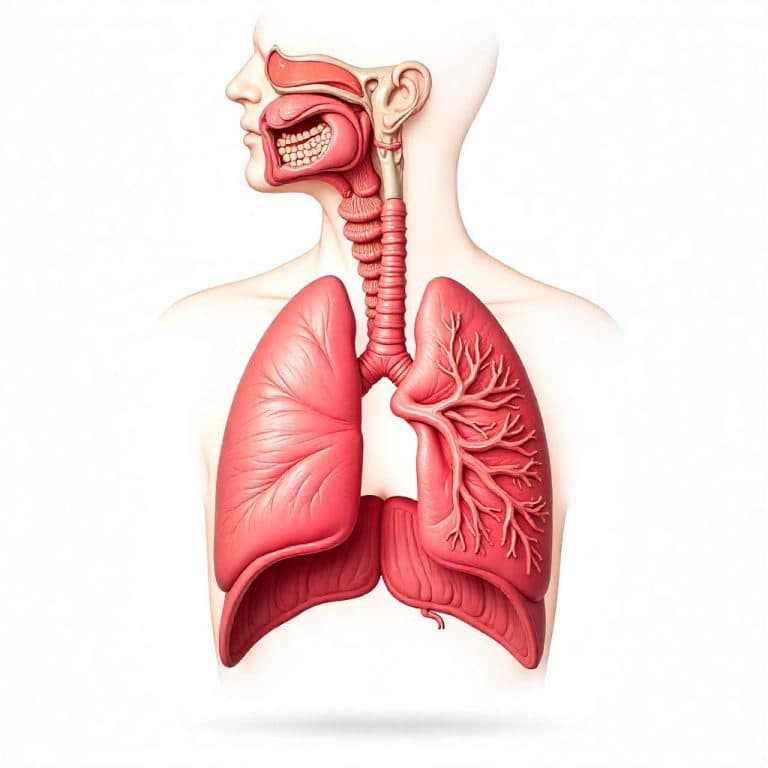Welcome to the Lower Respiratory Tract Quiz! In this quiz, we will explore the lower part of your respiratory system, which includes your lungs and airways.
You will learn about how your body takes in oxygen and gets rid of carbon dioxide through this important system.
Get ready to test your knowledge on the different parts of the lower respiratory tract and how they function. From the trachea to the bronchi to the alveoli, you will become an expert on how air travels through your body to keep you breathing.
So take a deep breath, and let’s dive in to the fascinating world of the lower respiratory tract!
Play Lower Respiratory Tract Quiz
Instructions
- This quiz is multiple choice.
- Read each question carefully before selecting an answer.
- Choose the best answer for each question.
- You will see the missed questions with correct answers at the end of the quiz.
Quick Facts
- The part of your body that helps you breathe and is located below your throat is called the lower respiratory tract.
- This area includes your bronchi, bronchioles, and alveoli, which help you take in oxygen and get rid of carbon dioxide.
- When you breathe in, air travels down your windpipe and into your lower respiratory system to reach your lungs.
- Your diaphragm, a muscle located below your lungs, helps you breathe by expanding and contracting to allow air to flow in and out.
- It is important for keeping your body healthy by providing oxygen to your cells and removing waste products.
- Illnesses like pneumonia, bronchitis, and asthma can affect your system and make it harder for you to breathe.
- Smoking and pollution can also harm your this area by causing inflammation and damage to the delicate tissues in your lungs.
- Regular exercise and maintaining a healthy diet can help keep your lower respiratory system strong and functioning properly.
- If you experience symptoms like coughing, wheezing, or shortness of breath, it’s important to see a doctor to make sure your this area is healthy.
- Taking deep breaths and practicing good breathing techniques can help improve the function and keep you feeling energized and healthy.
Downloads
No downloads found
Study Tips
- Create a study schedule and stick to it.
- Find a quiet and comfortable study environment.
- Remove distractions such as phones and social media.
- Take breaks every 25-30 minutes to avoid burnout.
- Use active studying techniques like summarizing, highlighting, and teaching concepts to someone else.
- Practice retrieval by testing yourself with flashcards or practice quizzes.
- Stay organized with notes, study guides, and resources.
- Stay hydrated and eat brain-boosting foods like fruits, nuts, and whole grains.
- Get enough sleep to improve memory retention and cognitive function.
- Reward yourself for reaching study goals to stay motivated.
